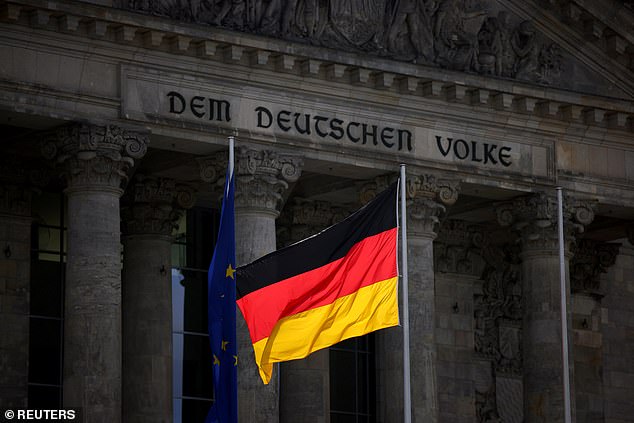German inflation falls more sharply than expected
>
German inflation is falling more than expected, raising hopes for a recovery in Europe’s largest economy
<!–
<!–
<!–<!–
<!–
<!–
<!–
Inflation in Germany fell more than expected last month, giving hope that the worst of the crisis in Europe’s largest economy is over.
The 9.6 percent figure for December was lower than the 11.3 percent in November and much lower than the 10.7 percent forecast by experts.
European stock markets rose and the euro fell against the dollar on the prospect that this could ease interest rates.

Positive signs: Germany’s inflation rate of 9.6% for December was lower than November’s 11.3% and much lower than experts’ forecast of 10.7%
However, hopes for an immediate course change were tempered by comments from European Central Bank (ECB) interest rate setter Martins Kazaks.
He said he expects further significant rate hikes in the coming months.
However, yesterday’s figures represented the first time German inflation has fallen below 10 percent since August.
It rose to 11.6 percent in October as the war in Ukraine drove up food and energy costs.
The energy spike has subsided and a one-time payment by the government to help consumers pay bills also impacted the December figure.
However, energy prices were still 24.4 percent higher last month than a year earlier, while food prices were 20.7 percent higher, according to data from Germany’s statistics office.
The better-than-expected overall figure comes after recent data from Spain also showed a slowdown in inflation.
But economists pointed to the continued strength of core inflation – which excludes volatile factors such as food and energy – in both countries.
